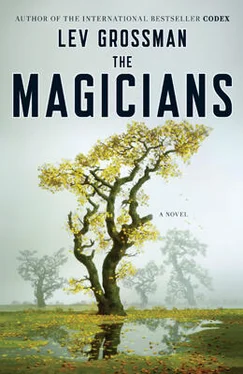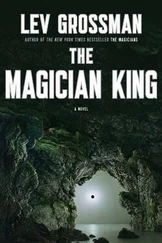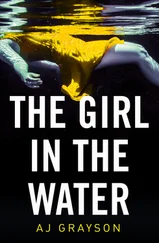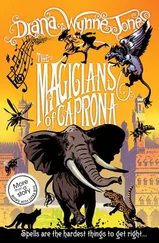And then there were the other moments, when he was violently sick of Brakebills and everything and everyone in it, when it felt lame and pokey and claustrophobic and he was desperate to get out. In four years he’d barely even set foot off the Brakebills campus. My God, he was wearing a school uniform. He’d essentially just spent four extra years in high school! Students had a particular way of speaking at Brakebills, an affected, overly precise, quasi-British diction that came from all those vocal exercises, like they were just freshly back from a Rhodes scholarship and wanted everybody to know it. It made Quentin want to lay about him with an edged weapon. And there was this obsession with naming things. All the rooms at Brakebills had the same identical desk, a broad-shouldered black cherrywood hulk that must have been ordered up in bulk sometime in the second half of the nineteenth century. It was honeycombed with little drawers and cubbies and pigeonholes, and each of those drawers and cubbies and pigeonholes had its own precious little name. Every time Quentin heard somebody drop a reference to “the Ink Chink” and “the Old Dean’s Ear” he rolled his eyes at Alice. Sweet Jesus, are they serious? We have got to get out of this place.
But where was he going to go, exactly? It was not considered the thing to look panicked or even especially concerned about graduation, but everything about the world after Brakebills felt dangerously vague and under-thought to Quentin. The bored, bedraggled specters of Alice’s parents haunted him. What was he going to do? What exactly ? Every ambition he’d ever had in his life had been realized the day he was admitted to Brakebills, and he was struggling to formulate a new one with any kind of practical specificity. This wasn’t Fillory, where there was some magical war to be fought. There was no Watcherwoman to be rooted out, no great evil to be vanquished, and without that everything else seemed so mundane and penny-ante. No one would come right out and say it, but the worldwide magical ecology was suffering from a serious imbalance: too many magicians, not enough monsters.
It made it worse that he was the only one who seemed to be bothered by it. Lots of students were already actively networking with established magical organizations. Surendra lectured anybody who would listen about a consortium of wizards — whom he hadn’t actually heard from yet, but he was pretty sure they’d basically guaranteed him an internship — who spent their time at suborbital altitudes keeping a weather eye out for stray asteroids and oversize solar flares and other potential planetary-scale disasters. Plenty of students went in for academic research. Alice was looking at a post-graduate program in Glasgow, though the idea of being separated didn’t particularly appeal to either of them, nor did the idea of Quentin’s aimlessly tagging along with her to Scotland.
It was considered chic to go undercover, to infiltrate governments and think tanks and NGOs, even the military, in order to get oneself into a position to influence real-world affairs magically from behind the scenes. People devoted years of their lives to it. And there were even more exotic paths. A few magicians — Illusionists in particular — undertook massive art projects, manipulating the northern lights and things like that, decades-long enchantments that might only ever have an audience of one. There was an extensive network of war-gamers who staged annual global conflicts over arbitrary tactical objectives, just for the fun of it, sorcerers against sorcerers, in teams and free-for-all battles royal. They played without safeguards, and it was well known that once in a blue moon someone got killed. But that was half the fun of it, the thrill.
And on and on, and it all sounded completely, horribly plausible. Any one of a thousand options promised — basically guaranteed — a rich, fulfilling, challenging future for him. So why did Quentin feel like he was looking around frantically for another way out? Why was he still waiting for some grand adventure to come and find him? He was drowning — why did he recoil whenever anybody reached down to help him? The professors Quentin talked to about it didn’t seem concerned at all. They didn’t get what the problem was. What should he do? Why, anything he wanted to!
Meanwhile Quentin and Alice plugged away at their mandatory senior theses with steadily diminishing enthusiasm. Alice was attempting to isolate an individual photon and freeze it in place, halting its headlong light-speed flight. She constructed an intricate trap for it out of wood and glass, interwoven with a hellishly complex spherical tangle of glowing indigo gramarye. But in the end nobody was quite sure whether the photon was in there or not, and they couldn’t figure out how to prove it one way or the other. Privately Alice confessed to Quentin that she wasn’t totally sure either, and she was genuinely hoping the faculty could settle it one way or the other, because it was driving her insane. After a week of increasingly fractious debate that settled nothing, they voted to give Alice the lowest possible passing grade and leave it at that.
For his project Quentin planned to fly to the moon and back. Distance-wise he figured he could get there in a couple of days, straight shot, and after his Antarctic adventure he was pretty solid on personal warmth spells. (Though they weren’t his Discipline either. He’d just about given up on his Discipline.) And the idea had a certain Romantic, lyrical savor to it. He took off from the Sea on a bright, hot, humid spring morning, with Alice and Gretchen and a couple of the more sycophantic new Physical Kids to see him off. The protection spells formed a clear bubble around him. Sounds became distorted, and the green lawn and the smiling faces of his well-wishers took on a surreal fish-eye warp. As he rose, the Earth gradually changed from an infinite matte plain below him to a radiant, bounded blue sphere. Overhead the stars came out and became sharper and steelier and less twinkly.
Six hours into the trip his throat suddenly clamped shut, and iron nails stabbed his eardrums. His eyeballs tried to pry themselves out of their sockets. He had drifted off, and his improvised space bubble had started to fail. Quentin waved his arms like a frantic conductor, prestissimo , and the air thickened and warmed again, but by then the fun had gone out of the whole thing. Bouts of shivering and wheezing and nervous laughter rattled him, and he couldn’t calm down. Jesus, he thought, was there ever anything less worth risking his life for than this? God knows how much interstellar radiation he’d already absorbed. Space was full of angry little particles.
He reversed course. He considered hiding out for a few days and just pretending he’d gone to the moon. Maybe he could score some moon dust off Lovelady, present it as evidence. The air got warmer again. The sky grew lighter. He relaxed as a cocktail of relief and shame filled him, one generous part of each. The world spread out again underneath him: the fractally detailed coastline, the blue water textured like beaten metal, the beckoning claw of Cape Cod.
The worst part turned out to be walking into the Great Hall for dinner that night, two days early, with a sheepish yeah-I-fucked-up grin plastered on his face, which was sunburned a flaming red. After dinner he borrowed Alice’s key and retreated to the Prefects’ Common Room, where he drank too much sherry, sipping it alone in front of the darkened window, even though all he could see was his own reflection, picturing the Hudson River moving past in the darkness, sluggish and swollen with cold spring rain. Alice was studying up in her room. Everybody else was asleep except for a lone weeknight party that was racketing on in one wing, spinning off drunk students in pairs and groups. When he was thoroughly smashed on self-pity and alcohol and the dawn was threatening to leap up at him at any moment, Quentin walked gingerly back to his bedroom, climbing the spiral steps past what used to be Eliot’s room. He weaved a little bit, swigging directly from the sherry bottle, which he’d liberated on his way out.
Читать дальше












